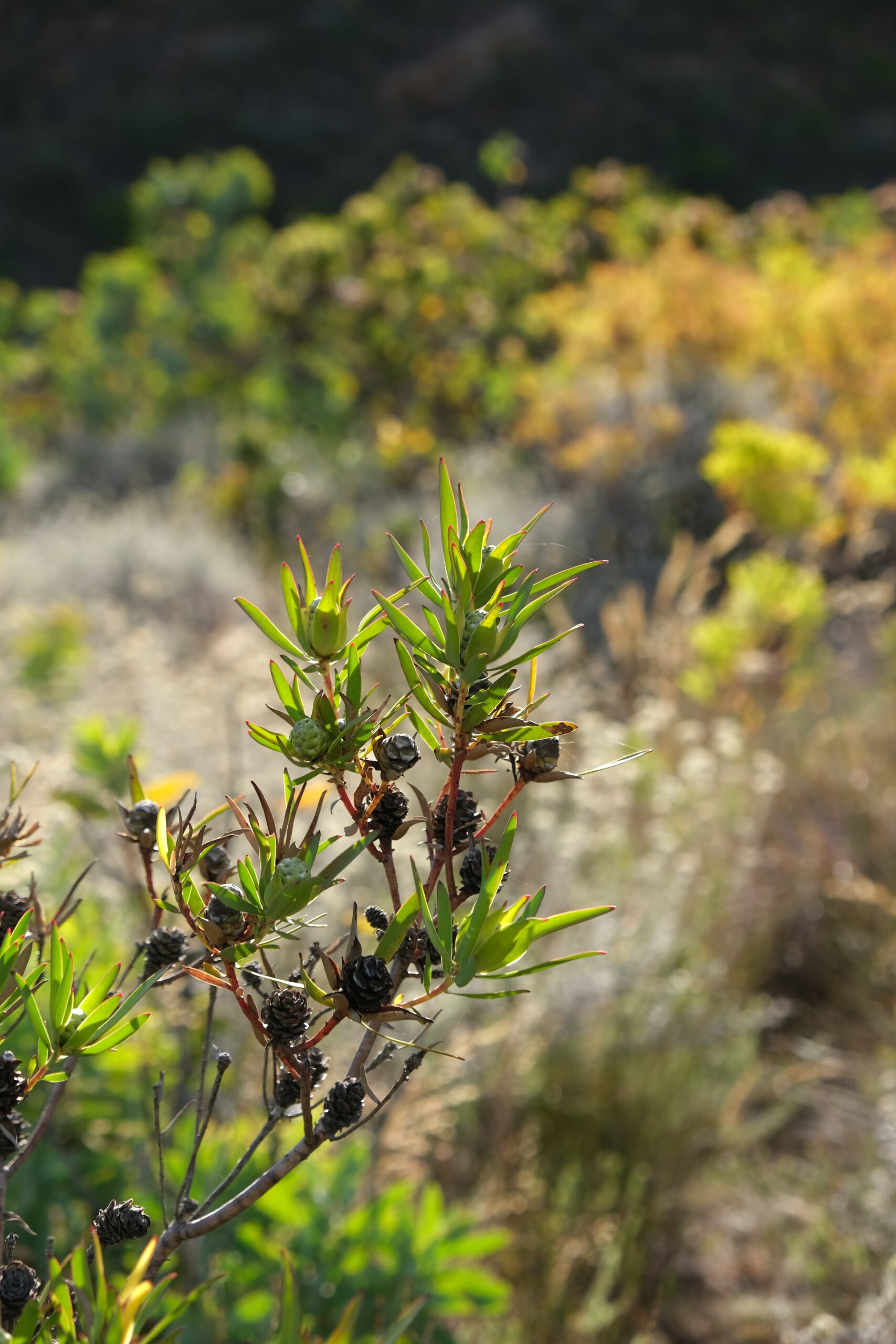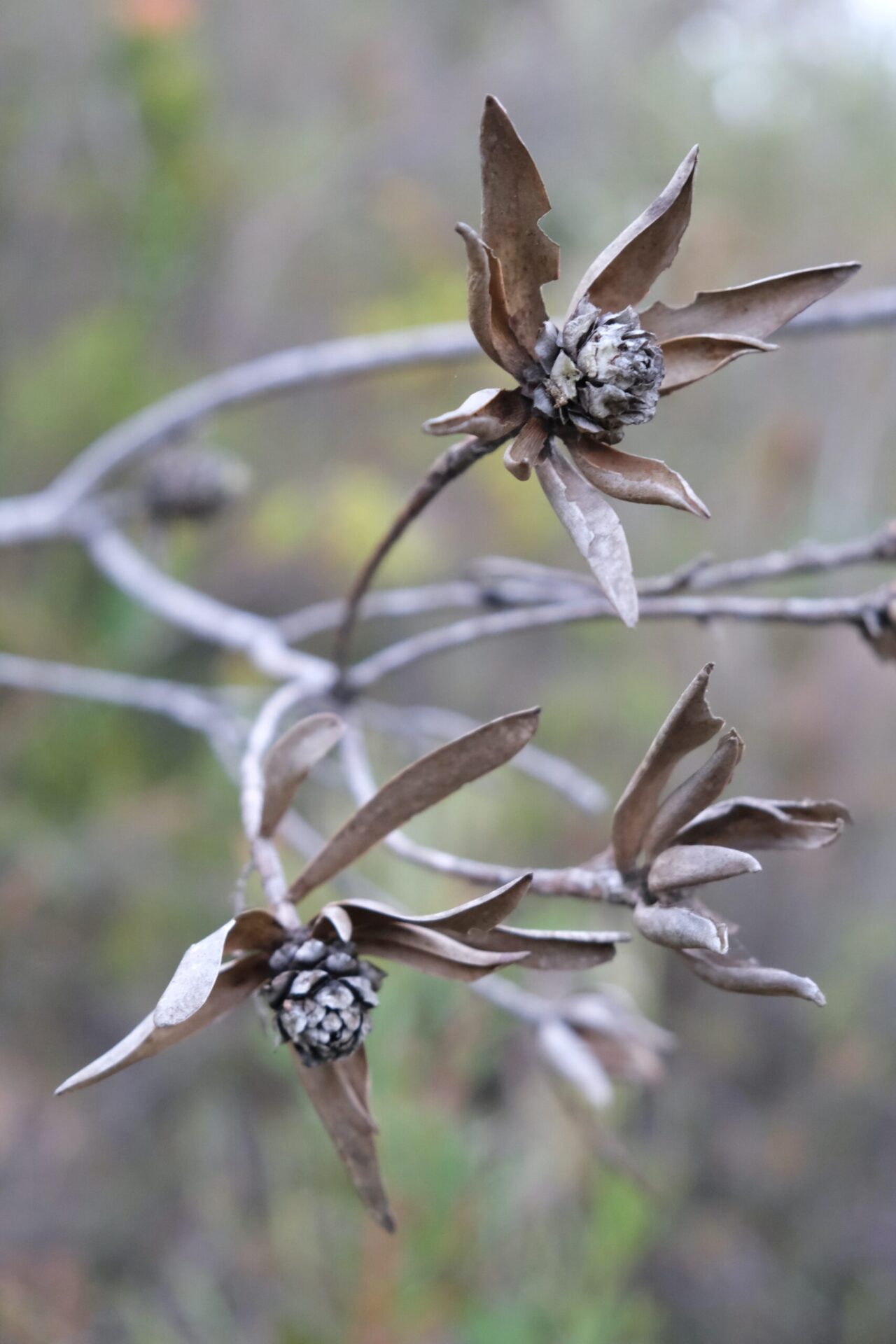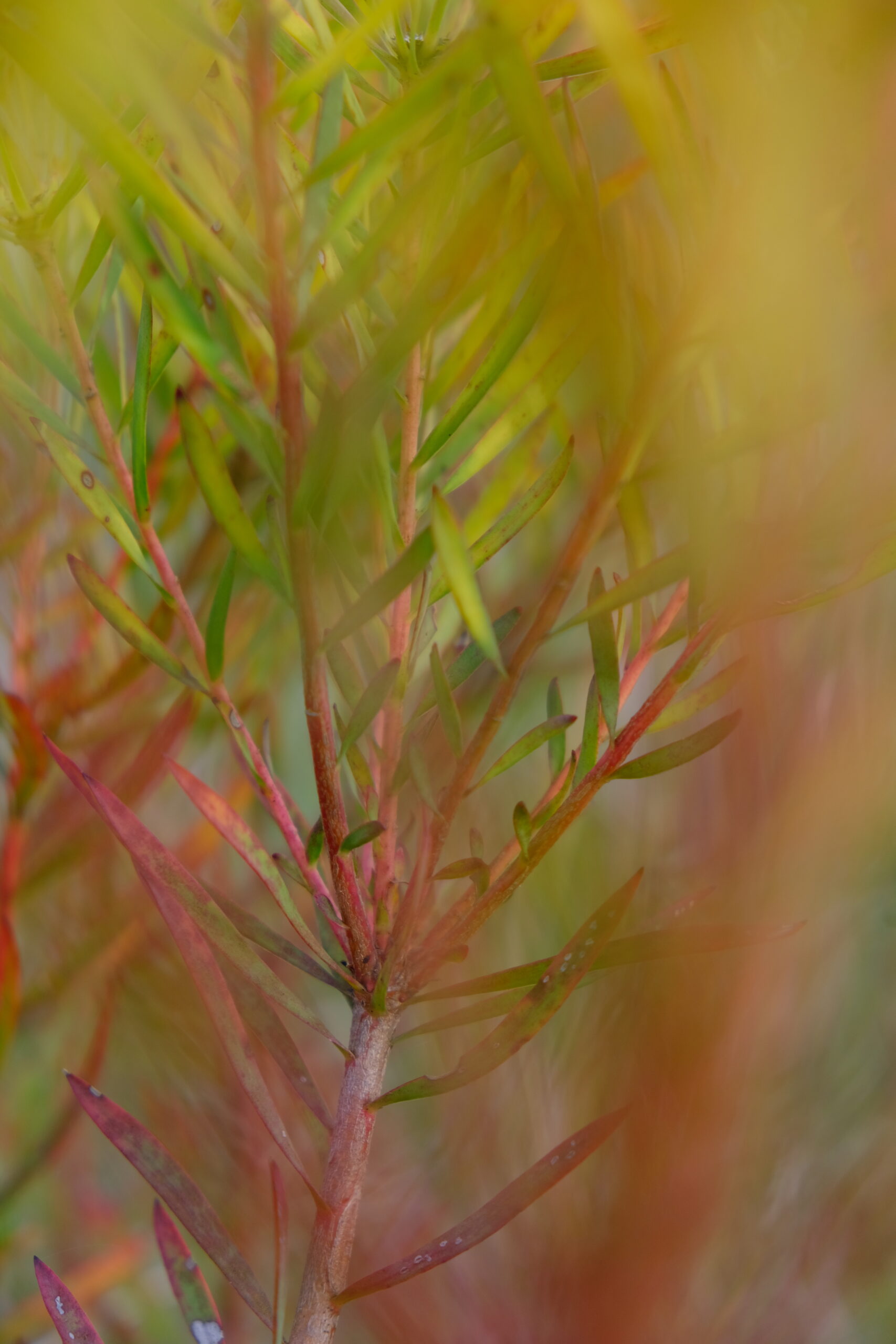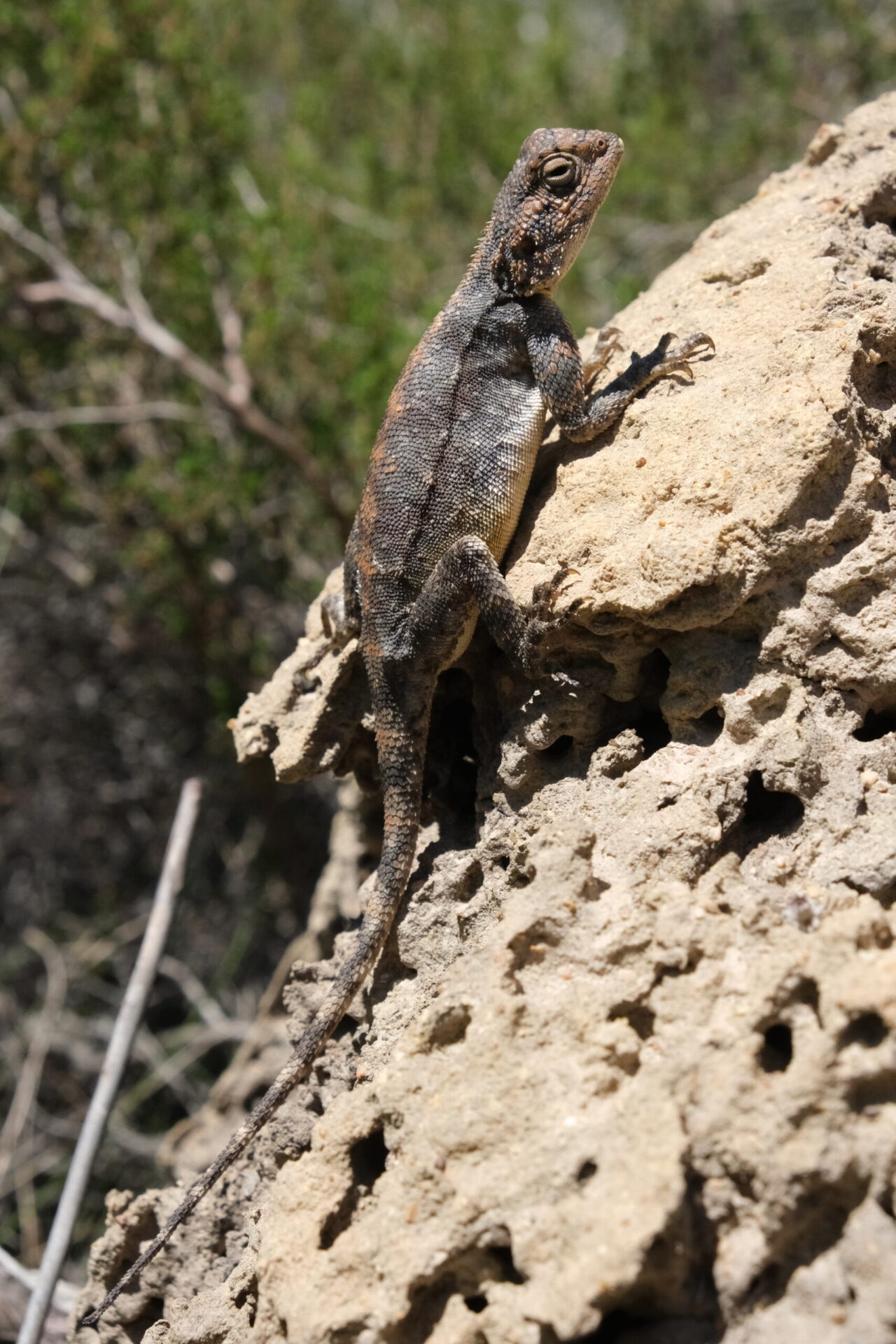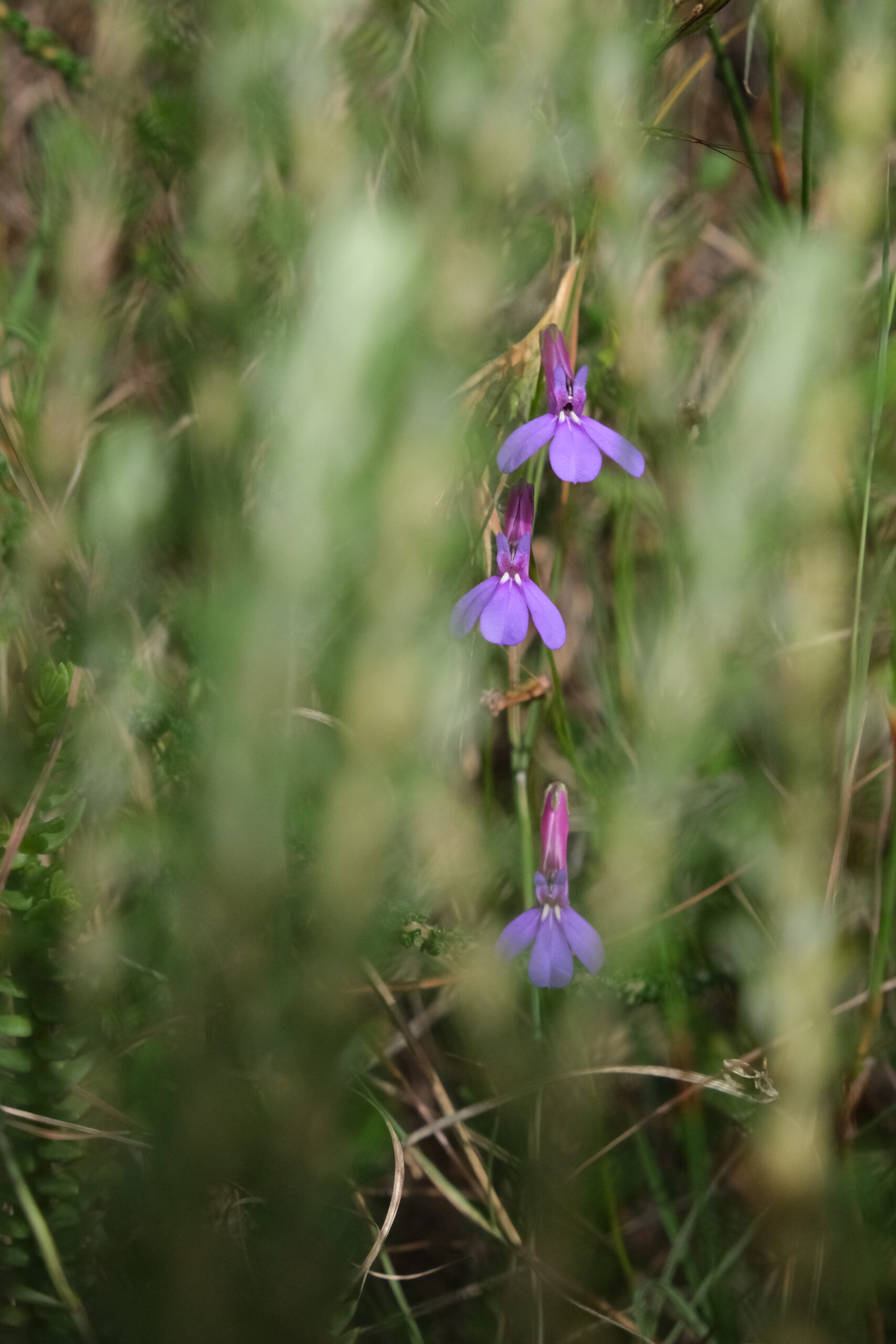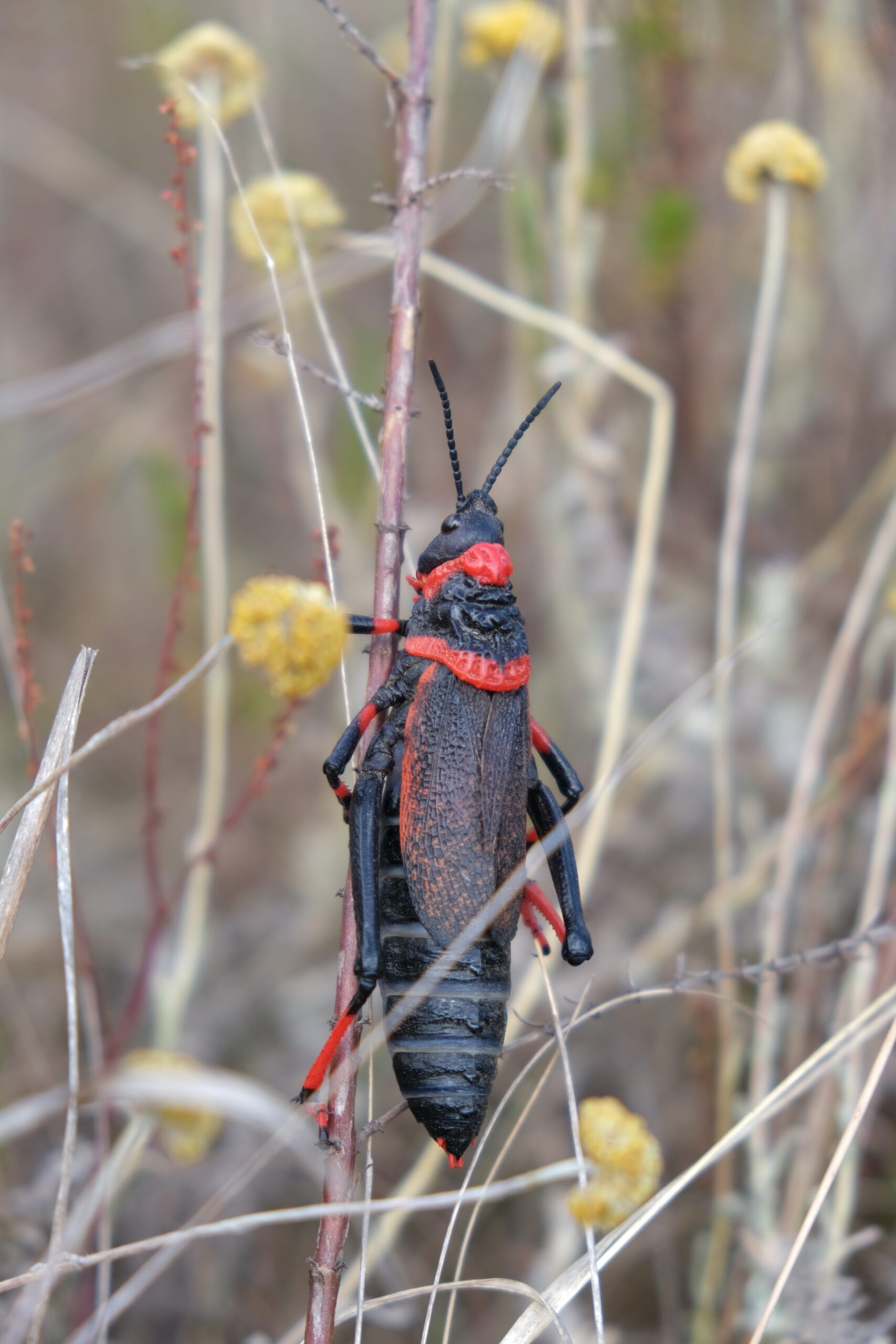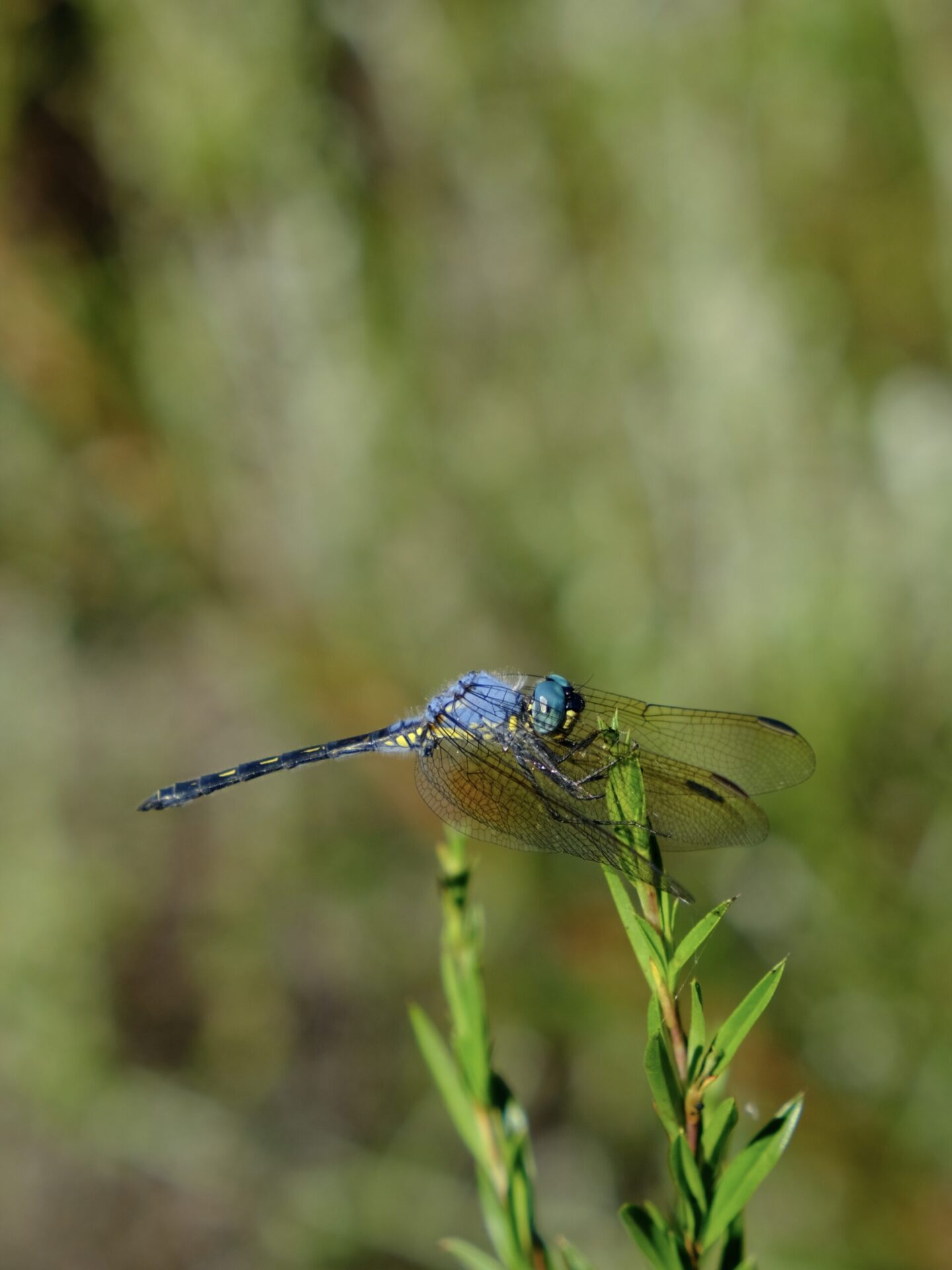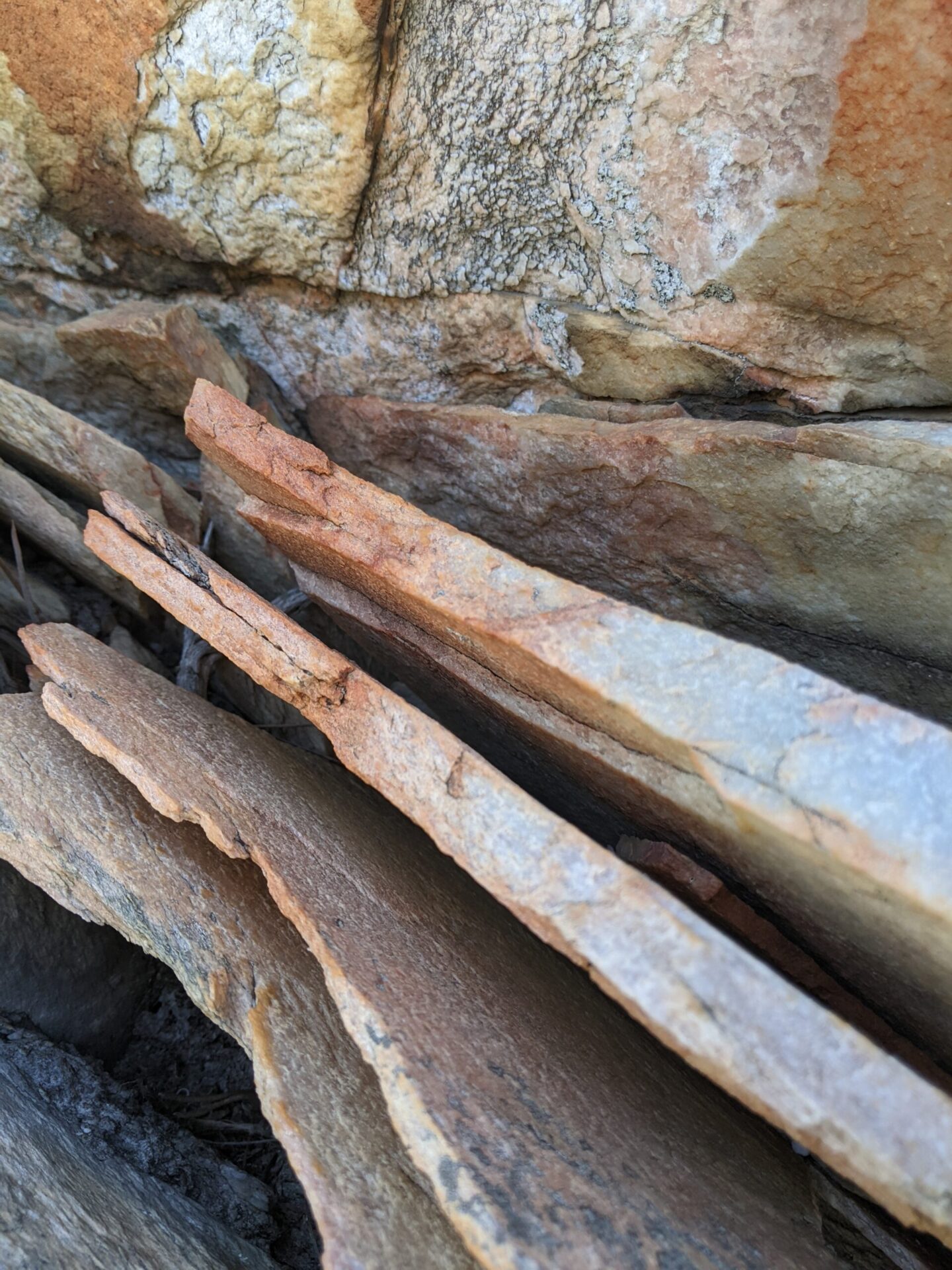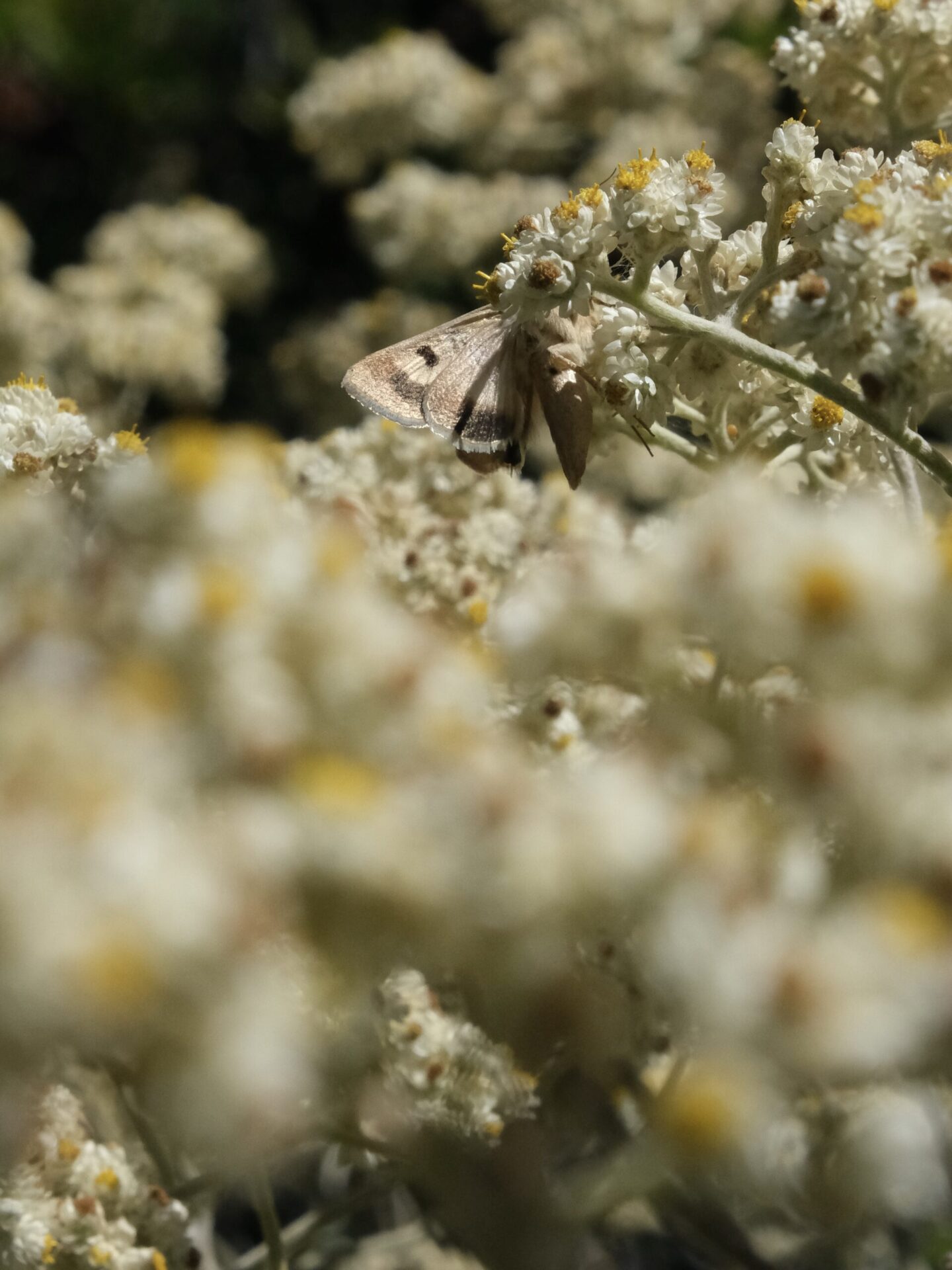We sit on a rising bank, just beyond reeds that hang with weaver bird nests. In front of us, a pond where dragonflies nip and swallows dip, lily pads brim and people swim. Drinking hole for the baboons who we hear barking roundabout. Receptacle for plentiful rain that has fallen on the Langeberg Mountains this year, running down from the hilltops in singing streams to pool. Here.
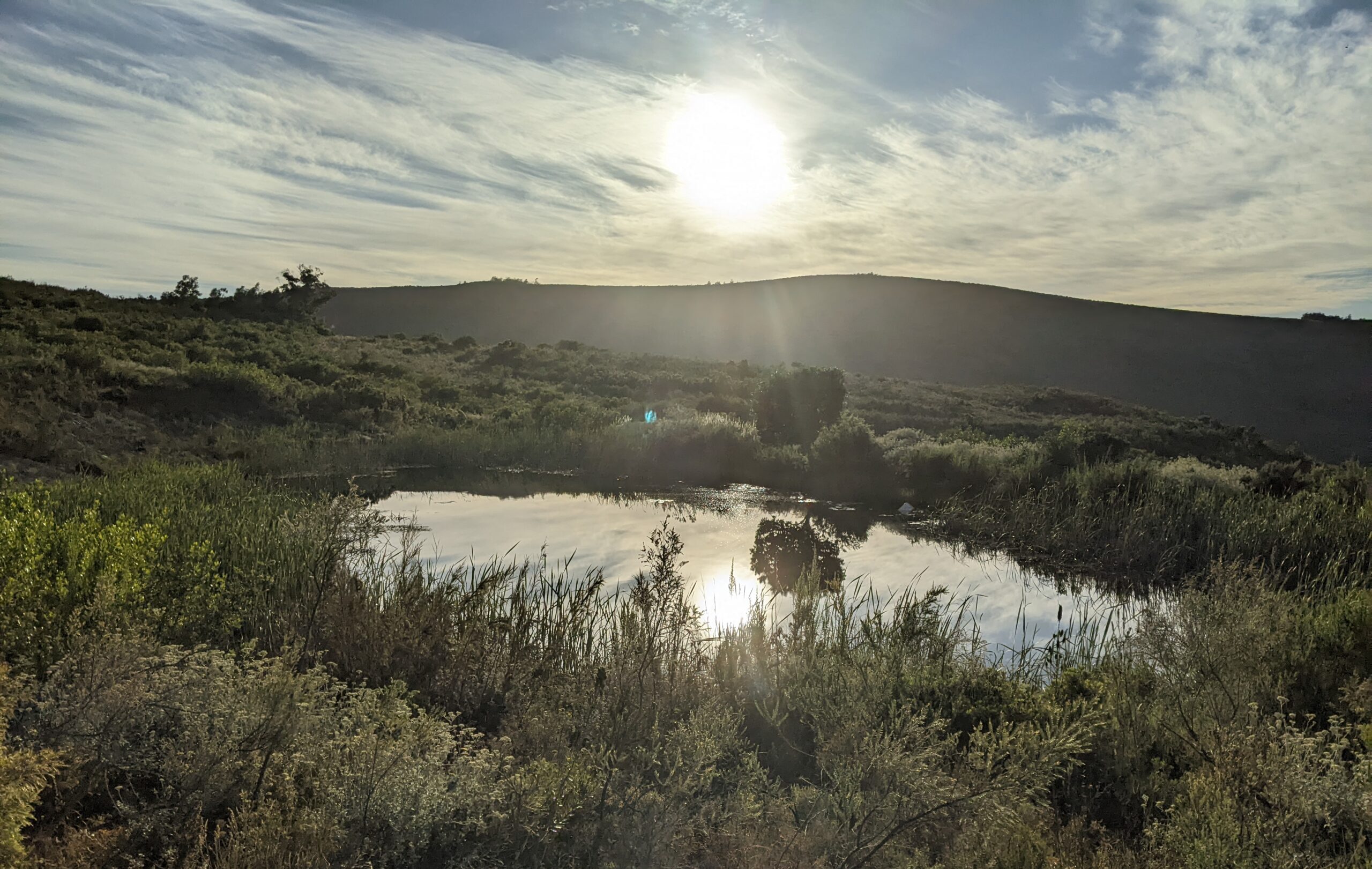
The ‘us’ is a group of Earth Jurisprudence trainees, mentors and facilitators, together for the final week-long retreat of a three-year programme. This course critically assesses industrial growth society and explores Earth Jurisprudence as a life-sustaining alternative. Facilitated by The Gaia Foundation, Siyama Programme, Proteus Initiative and many other tutors and graduates, the training convenes civil society leaders from across Africa who are working with communities to restore Indigenous lifeways. Our base for this retreat is Towerland in South Africa’s southern Cape: an exquisite wilderness that embraces visitors and reminds us that nature is home.

After breakfast, by the pond, the South African sun beats down on the back of our necks. Other days have been rain-etched, painting paths with giant snails who delight in drizzle. But this morning it is hot, and we draw our green scarves about ourselves to shield skin from sun. Besides providing shade, these represent the swaddling clothes mothers often use to carry children, in Africa and beyond. On retreat, they remind us to be humble. And of the opportunity we have been given to lean into, and learn from, that great mother known across cultures and times as Gaia, Pachamama, Mother Earth.
And Towerland has much to share. This place is a meeting point of three biomes: fynbos, succulent karoo and sub-tropical thicket. All are rich in endemic species, from the boubou shrike who serenades us over lunch, to the sugarbushes with limbs that creak in the morning heat.
We are encouraged to explore Indigenous ways of connecting with this community of life by Niall and Colin Campbell, sangomas (traditional doctors) from Botswana. Trainees have also been rediscovering their own traditions as part of this learning journey, and during the final retreat we are able to see similarities and differences across cultures.
“Our task is to become porous, and open to stories that differ from the dominant narrative of industrial society. To live a sensational experience, not just think about conceptual ideas. In this way, outdated narratives crack and new things pour in to expand us. It makes us hugely more inclusive. This is why Indigenous elders will often rebut a question, saying “we will talk about this or that once you have tried it”. Because new narratives emerge from experience. We must go out, as Earth Jurisprudence Practitioners, and practice. Doing, remembering, doing, expanding.” Colin Campbell

This idea is fundamental to Earth Jurisprudence, the philosophy seeded by Thomas Berry that was inspired by nature and Indigenous cosmologies. While western jurisprudence assumes that human laws can rein over the rest of life, Earth Jurisprudence recognises that we are participants within a greater whole. And so, during our Earth Jurisprudence training, we return to practices – including song, dance and vigil – that were cultivated by Indigenous communities to sustain a reciprocal relationship with their ancestral lands over millennia.
“The current, dominant story prepares us to become commodities. And a terrible loneliness comes from that. But we don’t need to live in this way. We must not live in this way. The primary purpose of practices is to relocate us to the nature of ourselves.” Colin Campbell
The third cohort of Earth Jurisprudence trainees have been unearthing many aspects of themselves. During the training they have been cultivating their relationship with the world, experiencing an ever deeper sense that nature is not a collection of objects, but a communion of subjects to which we belong, as Thomas Berry would say. The trainees have also been reconnecting with the roots of their ancestry, tracking the lineages of parents and grandparents back to the clans of their Indigenous cultures.
“There, they are learning from elders – those taproots who hold a depth of knowledge that outreaches colonialism. Through careful work that begins with elder-centred dialogues inspired by Amazonian communities, Indigenous lifeways begin to weave back together again – through the revival of seed diversity, sacred natural site rituals, spirit-led ecological governance and more. This ancient ancestral wisdom inspires the trainees, as a sense of meaning and direction finds home in their hearts.” Liz Hosken
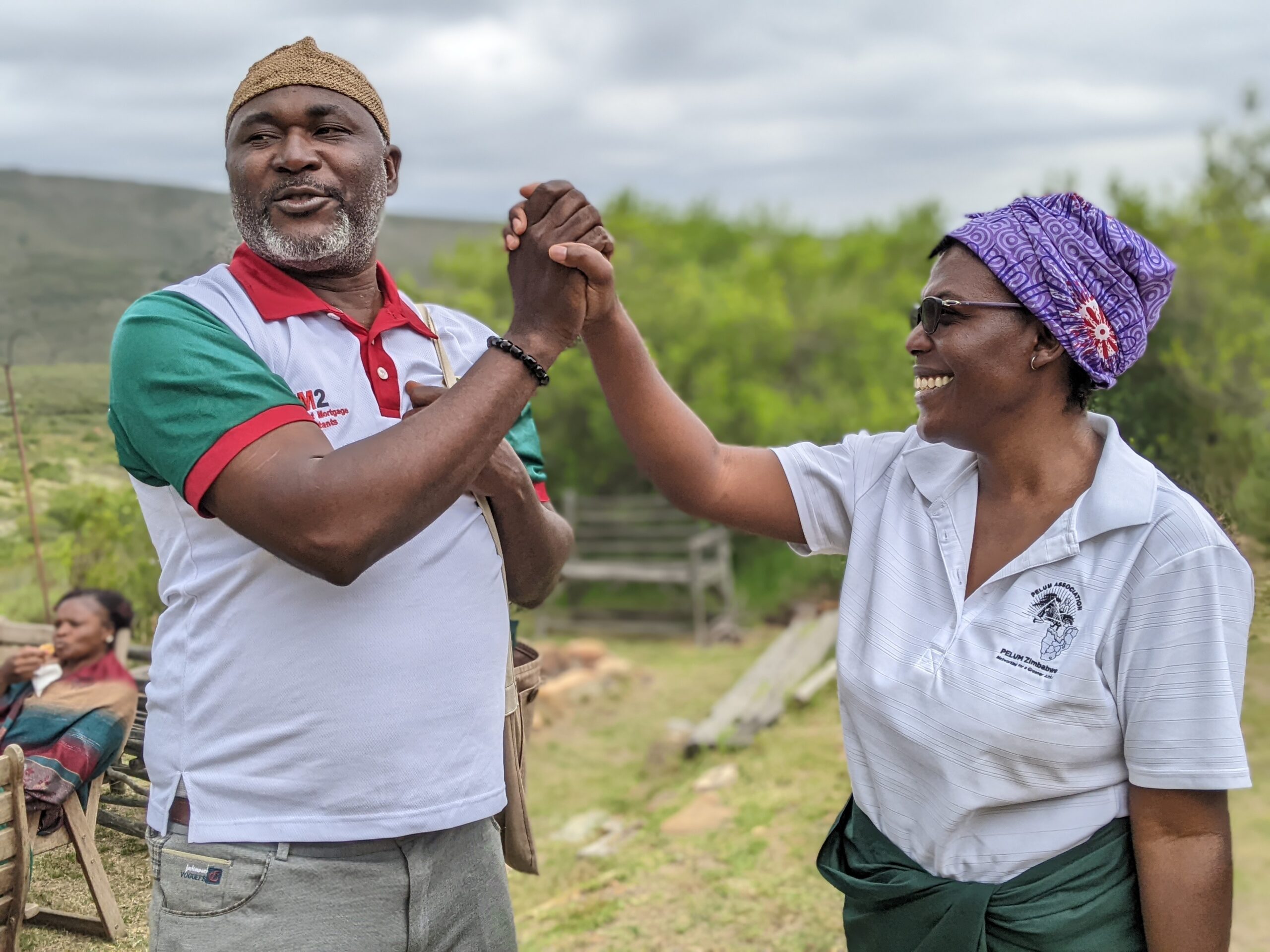
Trainee, Christian, and mentor, Gertrude
With these journeys unfolding at home, the week at Towerland was a final opportunity to build solidarity together, with our-more-than-human kin. And so, on the bank, we sing with the frogs. Chirping, booming, cheeping, crooning, all underlined by croaking drones.
It is surprisingly tempting, at first, to sing in unison. We organise our human voices into a homogeneity that speaks nothing of the frogs’ real conversation, which only synchronises momentarily before shifting out of phase once more. And so we learn to immerse – to listen to the ecosystem that we are part of, learn its laws, and then participate. In doing so, we pick up more than the perfect croak.
“It’s about being heard. When frogs sing, they don’t sing in unison. Each listens, then responds. They speak into the spaces. This is what it means to come together.” Colin Campbell
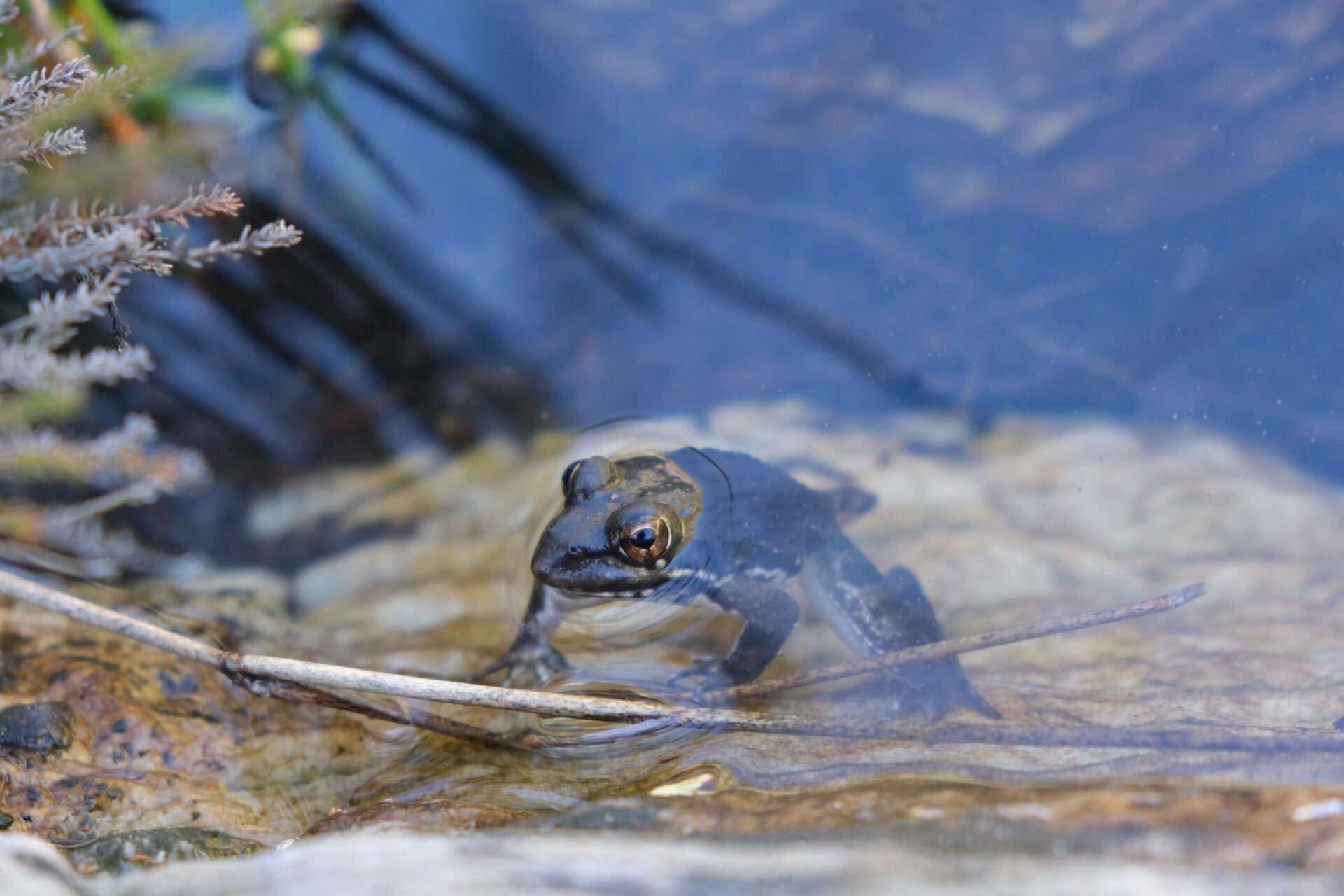
“We can track this thread to the formation of human language, which began as sounds that elicited a response. That ancient vessel called poetry still has this quality. It can emulate birds, frogs, insects, depending on the aim of the poem. Or a cockerel, which likes to be heard before everyone else. Or the wind or the oceans. You can still hear this in the way elders speak. Poetry has dissolved in modern times along with song and dance. Often these things have been trivialised to remove their strength. But returning to them is a great restoration of our capacity, millennia old but dormant. When we practice them, we return to ourselves and the great commune of life.” Niall Campbell
There is inspiration here, for the way we can find a positive path forward in precarious times: by listening deeply to the ways of the natural world, that we can once again align ourselves. As in all systems, it is diversity that creates the capacity to evolve. In the context of climate change, mass extinction and social injustice, we need a diversity of voices all contributing what they can in their own niche, to crescendo into a cacophony of collective strength. A polycrisis demands a poetic, polyphonic response.
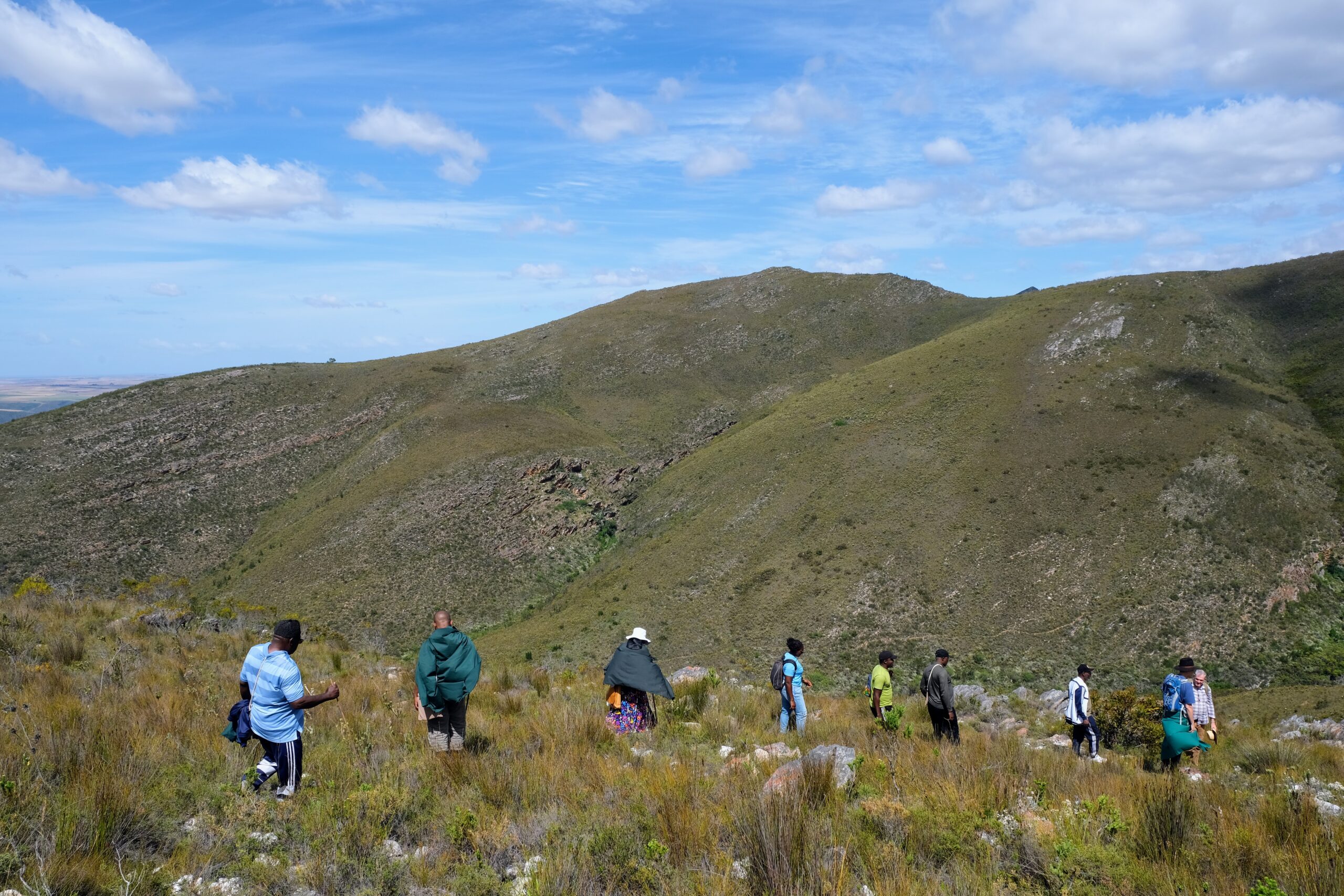
As this cohort complete their training they will join the African Earth Jurisprudence Collective – a home for graduates and facilitators. Anchored by this community of practice, Christian, Julie, Sone Wang, Victor and Xavier will continue to deepen the journey they have begun – by following the threads of their lineages, by accompanying communities in reweaving resilience, and ultimately by contributing to landscape-scale tapestries of biocultural diversity across their homelands of Cameroon and Benin. In the image of our friends, the frogs, pelting out a polyphony from a pond edge, each of us is encouraged to find our calling in this life, and sing with everything we’ve got.
Words and photos by Amy Forshaw, The Gaia Foundation

